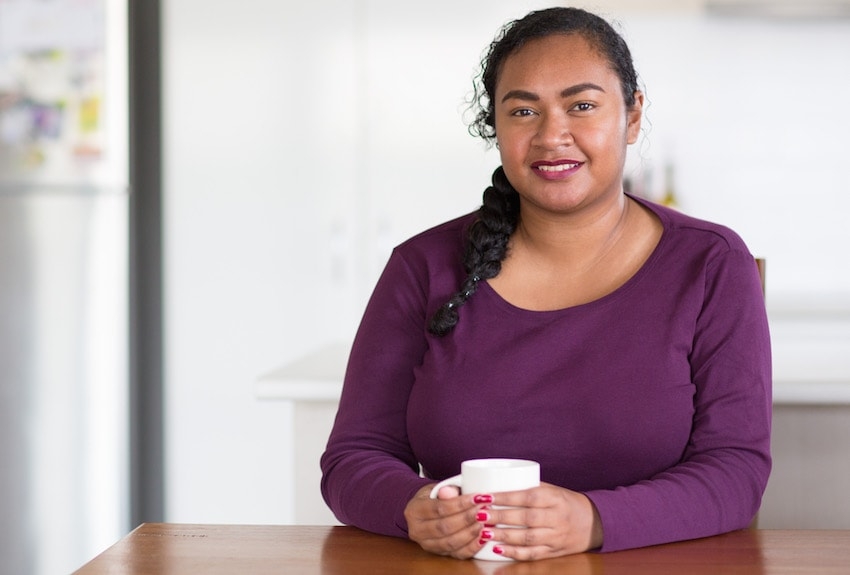There’s no information about mental illness in Papua New Guinea. I’ve never heard of a counsellor or psychologist there. If you ask people what it is they describe what they see in the movies — extreme conditions, seriously dramatised. Growing up, I think depression was just seen as a feeling.
Five years ago, I moved to Brisbane from PNG, reluctantly. I was 17. Back home I was used to having my friends and 50 cousins nearby, here I knew no-one. My siblings, Mum and I are now settled here, my Dad still lives and works over there.
A couple of months into my new school I started to skip classes or not turn up at all. On reflection, I’ve thought about why I started to rebel. It wasn’t conscious, it sort of just happened. I think I never saw a future for myself — growing up, working or having kids. I had no hopes for the future and always thought I’d die young. Maybe it was my way of reaching out — falling and hoping my parents would catch me.
After I graduated, I was in a bad state of mind, and realised that I had to get myself out of it. I went to my GP, he thought I had depression and referred me to a psychologist.
I didn’t want to accept it back then, I was embarrassed and didn’t know how to tell my family. We didn’t know what depression was.
My parents thought it was a feeling you have when you’re sad — I’d have my little panic attacks, then get over them.
Last year my grandmother passed away and I hit rock bottom. I stayed in bed until mid-afternoon, and only left my room to go to the bathroom or kitchen. I hardly went to work, avoided talking to friends or family and was always in a bad mood. I felt like no-one really understood — people thought I was grieving and would get over it, they didn’t realise there was something more.
Work was supportive at the start, I had a great supervisor and started to see a counsellor, I got a lot of things off my chest. Then a new team leader came on board, and he thought it was best for me to resign, come back when I was better.
My best friend Jonathan checked on me often, he was with me that whole time. He’s always encouraged me to talk about what I’d been feeling, why I might be feeling that way and urged me to think about how I could make it better.
Last year I started dating. I don’t want to say I’m changing for my boyfriend, but he makes me want to be a better person. I’m learning to control emotions, especially my anger, and his close relationship with his family inspires me to make an effort with my own.
I’m really open with my story on social media. I see my experience with depression and anxiety as a lesson learned. I want to use it to help others that are struggling. One day I’d like to help my people back home in PNG and raise the issue with our health minister.
If I have any advice I can share from my experiences, it’s that your story doesn’t end here. There is help out there, people that will listen, on and offline. Don’t be ashamed or embarrassed about who you are.

